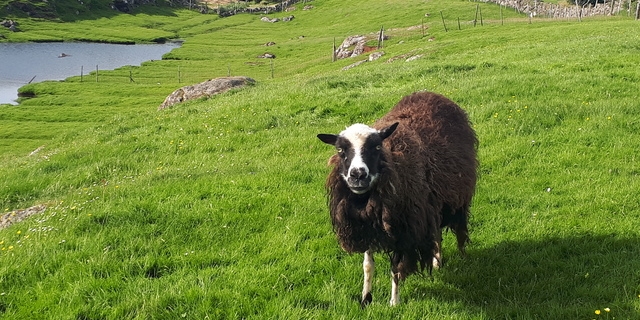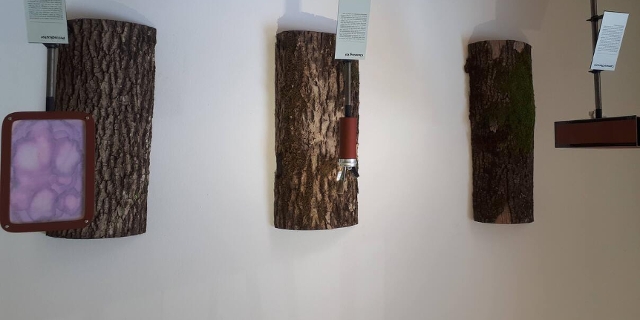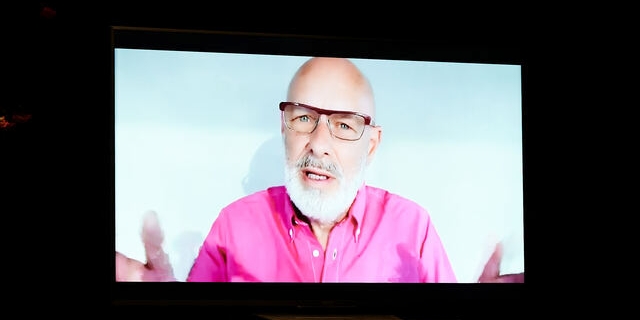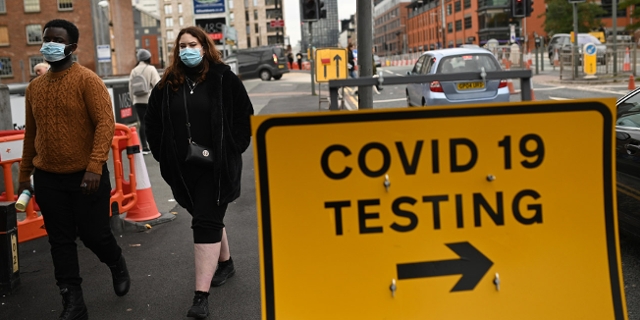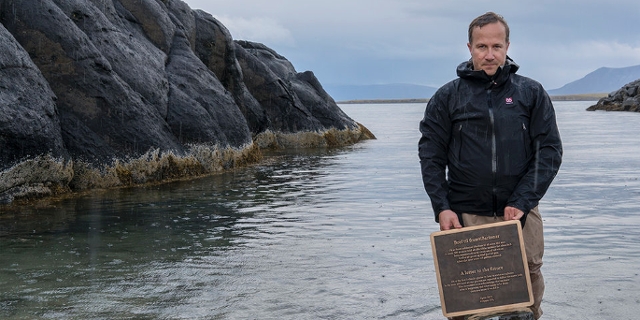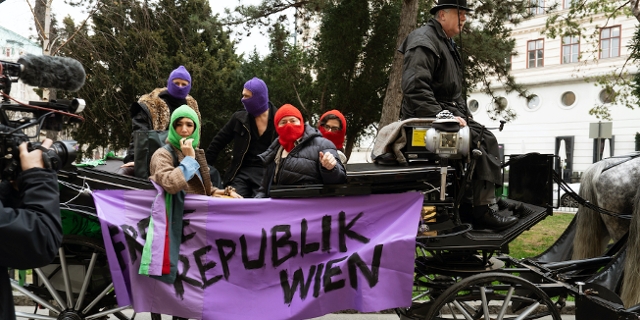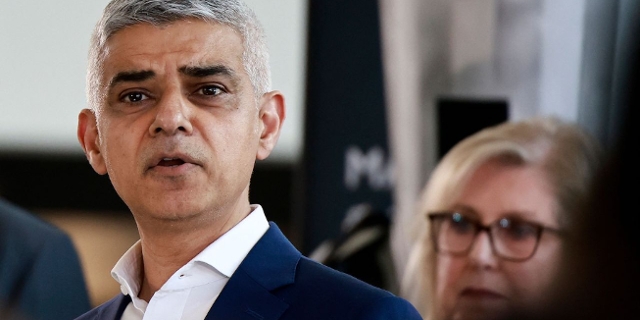On board the Aquarius rescue ship
By Johnny Bliss
„No one knows these people. If we talk only about numbers, we dehumanize them, which makes it easier to turn a blind eye when they die at sea.“
Those are the words of Avra Fialas, the Communications Officer on-board the rescue ship MS Aquarius. I met her in mid-October, along with her colleague Julie Bégin, at a press conference of SOS Méditerranée in Marseille.
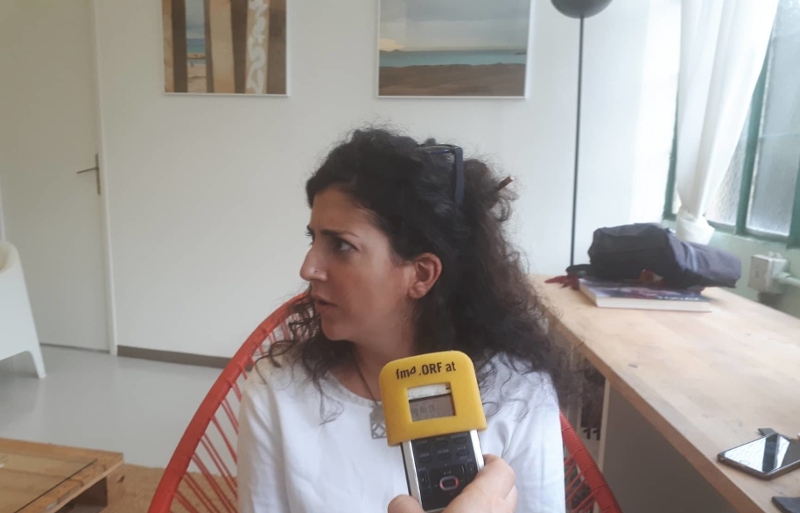
Johnny Bliss
Avra Fialas, Communications Officer of MS Aquarius
The purpose of the press conference had been to discuss recent attacks on their offices by right-wing activists from Generation Identitaire, but I was there for a different reason: to discuss the circumstances that led to the MS Aquarius losing its Panama flag, and therefore its legal right to sail and conduct SAR (search-and-rescue) operations, as of this October.
Reality Check, November 19th-23rd
On Johnny’s Audio Odyssey this week, our roaming reporter Johnny Bliss is on-board the ship legendary for rescuing asylum-seekers fleeing across the Mediterranean: the MS Aquarius rescue ship. He’s spoken with crew members, press officers, and medical professionals working for Doctors Without Borders (MSF), to get an intimate look at the real people affected by this humanitarian crisis on the sea. From 1pm, and afterwards seven days on demand.
Check this spot at the end of the week for the Reality Check podcast!
„This happened once before,“ Avra told me. „In June, the MS Aquarius was de-flagged by Gibraltar. Then we managed to get another flag from Panama, but after our last rescue, we were notified officially that Panama had been put under pressure, both economical and political, from the Italian government and the ship would be therefore de-flagged by Panama as well.“
New developments do not bode well for the future of the Aquarius either. Just this week, the Italian judicial authorities have ordered the seizure of the Aquarius, on the basis of allegations that they dumped onboard waste illegally in the sea, something which SOS Mediterranee and MSF categorically deny.
"This is another strike in the series of attacks criminalizing humanitarian aid at sea. The tragic current situation is leading to an absence of humanitarian search and rescue vessels operating in the central Mediterranean, while the mortality rate is on the rise,” responded Frederic Penard, SOS MEDITERRANEE Head of Operations.
While few ships have faced measures as the ones currently facing the MS Aquarius, current policy under Italy’s new populist government nevertheless does not grant rights of disembarkation to ships carrying rescued migrants.
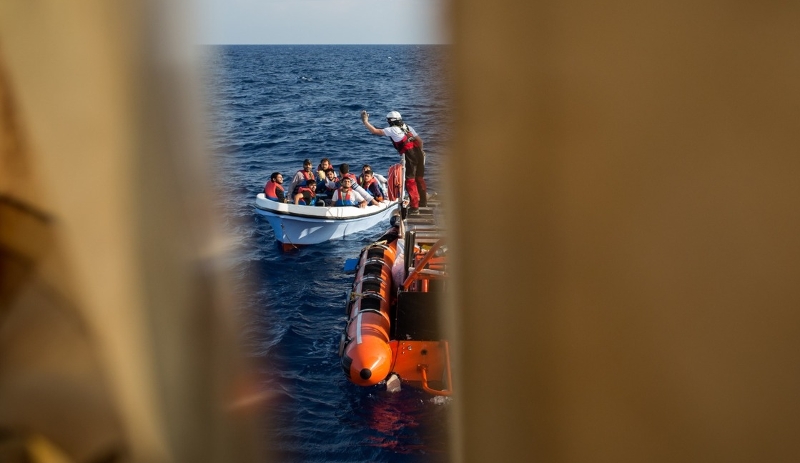
Maud Veith, SOS Méditerranée
This, as well as similar measures in the neighboring country of Malta, has had the intended effect of drastically reducing the number of rescue ships operating in the Mediterranean.
SOS Méditerranée is a humanitarian organization focused on rescuing people lost at sea.
In February 2016, along with Doctors Without Borders (MSF), SOS chartered the boat MS Aquarius, to help rescue asylum-seekers fleeing to Europe across the Mediterranean Sea.
The bright side, if there is one, is that journalists such as myself and FM4’s Lukas Lottersberger have gained easier access to those seafarers who would ordinarily be busy manning rescue ships. Instead of rescuing people in real life, they get to instead sit down to tell us about their experiences doing so, as if this humanitarian crisis were something that had happened in the past.
In June, meanwhile, the Italian government, with the complicity of the EU, acceded all rescue operations within the search-and-rescue region (SARR) to the Libyan Coastguard and joint rescue coordination center (JRCC). This too has had an obstructing effect on rescue operations, as Julie Bégin, the regional Communications Manager for SOS Méditerranée in Marseille, told me.
"The first time we had to make an operation under control of the Libyan Coastguard, we found a ship in distress. We did what we were supposed to do, which was quickly call the JRCC, though it was difficult to make contact. When we finally reached them (long after completing the rescue), they told us, ‘well, bring the survivors back to us’. So we said, ‘that’s not possible, you will bring them back to Libya, and Libya is not a port of safety. We would be breaking the law if we would give you back those people!’
„Later, what we heard back from Italy was that because we’d disobeyed the coordination center, we were outlaws! But actually it’s the coordination center itself which is breaking the law. This is a very big problem right now, because the legislation is not made to address these sorts of problems.“
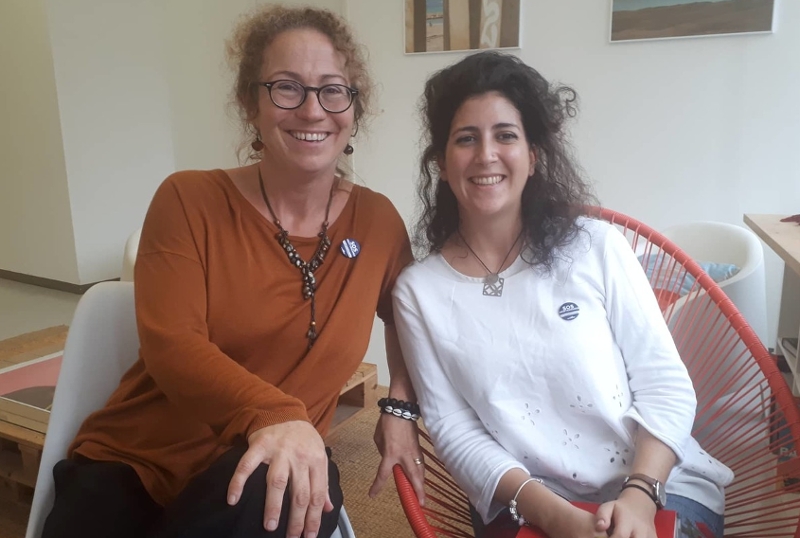
Johnny Bliss
Julie Bégin & Avra Fialas, SOS Méditerranée
One criticism that has often been mounted against rescue ships, is that the more of them that are out there, the likelier it is that would-be migrants will be willing to risk a journey on the open waters. (This problem has been addressed quite eloquently in a recent article in Der Standard.) Therefore, the reasoning goes, the rescue ships - by making themselves so available - themselves become part of the problem. I asked Julie and Avra how they’d respond to such charges.
„They’re FLEEING from a country,“ Julie told me, "where they’ve been persecuted. All the testimonies we’ve heard from people on board, they’re saying: ‘I’ve been raped,’ ‚I’ve been tortured,’ ‘I saw my friend get murdered,’ and above all, they all say one thing: ‘I’d rather die at sea than stay in Libya.’.
„And we’ve received testimonies from the MSF in Libya,“ added Avra, „of survivors of shipwrecks who saved themselves, and returned to Libya. They’ve testified about shipwrecks where hundreds of people were dying. So just because we’re not there to rescue them doesn’t mean they’re not still there.“
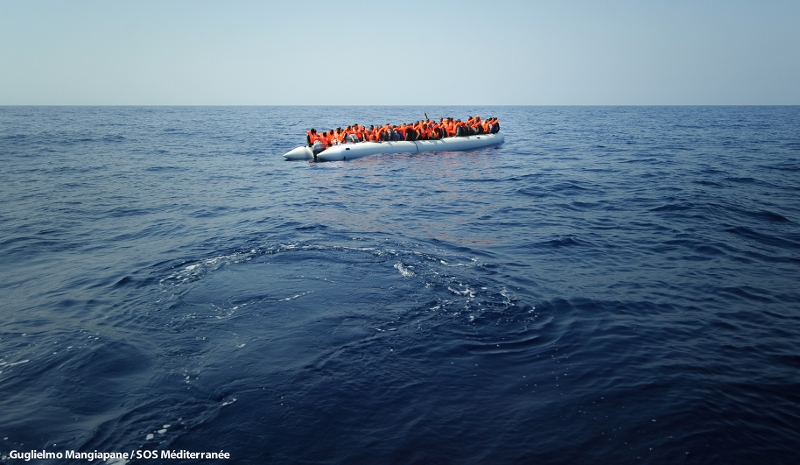
Guglielmo Mangiapane, SOS Méditerranée
Everything Julie and Avra said made sense to me, but at the same time, it also felt very far removed from the room in the community center where we were sitting in comfortable chairs, having this conversation.
Therefore, when Avra suggested I join her and some experienced members of the crew on-board the MS Aquarius itself, I jumped at the opportunity!
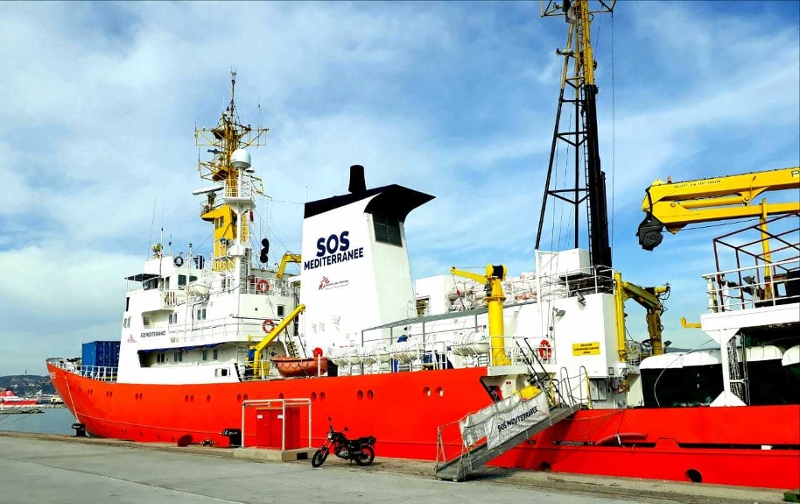
SOS Méditerranée
MS Aquarius
The first person Avra introduced me to was the ship’s search-and-rescue coordinator, Nicola Stalla. He is the man in charge of the „binocular team“, who would spend their days at sea scanning the horizon in shifts, searching the endless expanse of water for any sign of debris that could be a ship. He’s an experienced seafarer who has been working on rescue ships for two years.
I asked him if he could ’paint me a picture‘ of what it’s like viscerally to conduct a rescue, from the moment of first sighting to actually bringing migrants on-board the boat.
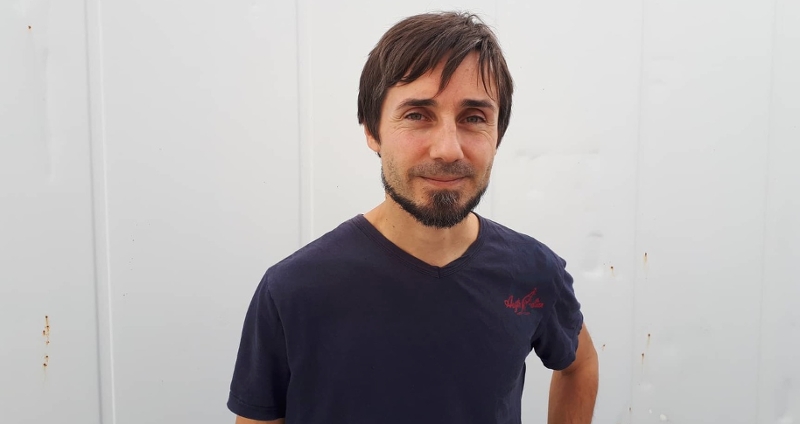
Johnny Bliss
Search-and-rescue coordinator, Nicola Stalla
"At the moment when you have a first visual, it’s only a little spot, and you don’t really know if it’s a boat or not.
"The closer you approach, you start seeing the shape of the boat, and the silhouette of the people. When you are close enough and you see their faces, that’s a bit shocking, especially the first time. They’re completely scared. The moment when they see that there’s a possibility of being rescued, they get agitated, which creates a bit of a challenging ‘crowd control’ moment!
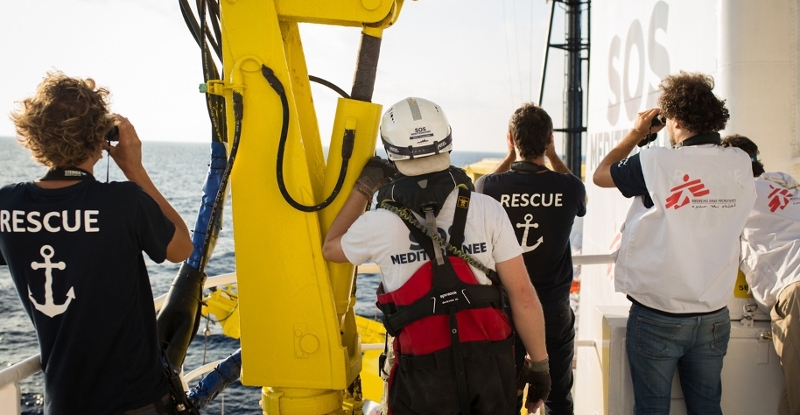
Maud Veith, SOS Méditerranée
Search-and-rescue with binoculars
"What has changed a lot in this phase of the approach is that in the past, people were relieved to see somebody approaching to help them. What we see now is that they’re even more scared in the moment that we approach.
"This is because many of them have attempted to flee from Libya multiple times in the past, and they have been intercepted at sea by the Libyan Coastguard, and returned to Libya, the place that they’re trying to flee!
„You can imagine their relief when we tell them that we are a European ship, and we will bring them to a place of safety, and not Libya!“
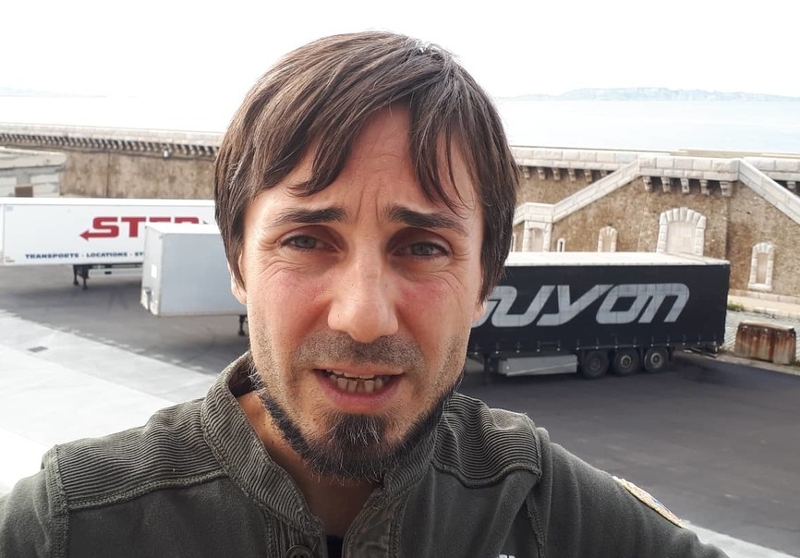
Johnny Bliss
Search-and-rescue coordinator, Nicola Stalla
But finding the ship is only the beginning. Bringing the migrants on-board comes with its own set of challenges.
"You can’t just approach and go alongside, to pick people up from the boats in distress directly onto the ship, because this can cause the boat to capsize, to be punctured and deflated if it’s a rubber boat, or can lead to the survivors panicking and trying to rush onto the ship.
"A lot of casualties have been reported, especially from merchant ships that attempt to perform rescues this way, because they’re not equipped and trained to perform a mass-rescue operation. And this is also one of the problems encountered with the Libyan Coastguard, who only have petrol boats, which are not suitable to perform this kind of operation.
„So our rescue boats, small rigid hull inflatable boats (RIB), are fundamental. The maneuverability, being able to quickly intervene if there’s any person overboard. On the Aquarius, we have three of them. The first step is to provide every person on board with life jackets. That way, if the weather is bad or something unexpected happens, we can still rescue them from the water.“
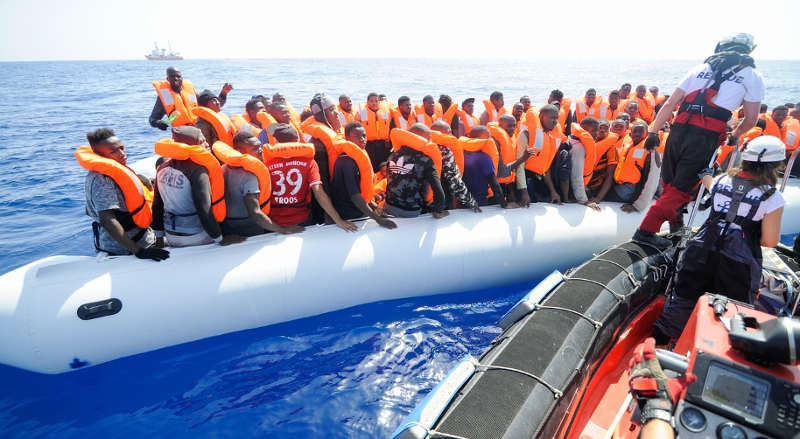
Guglielmo Mangiapane, SOS Méditerranée
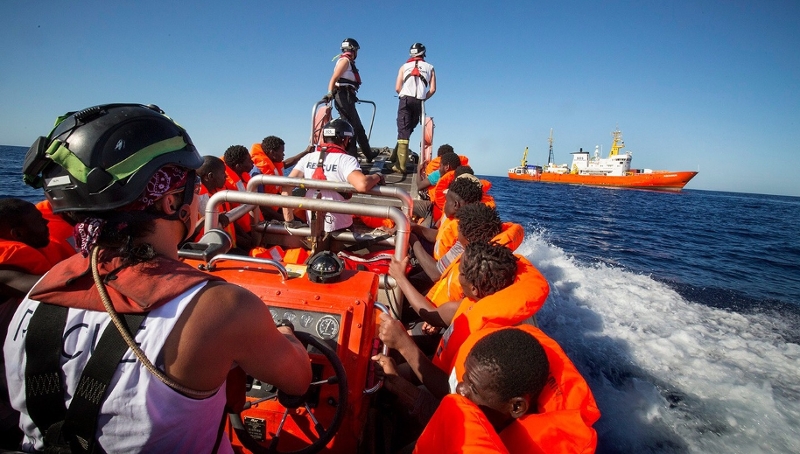
Anthony Jean, SOS Méditerranée
Of course, while some migrants are still in reasonably good health, others will already be dead or dying. The next stage of the operation is also of critical importance: medical treatment.
To get a better overview of what that involves in practice, I got in touch with the coordinator for Medecins Sans Frontieres / Doctors Without Borders (MSF) on-board, a soft-spoken Canadian named Tom de Kok.
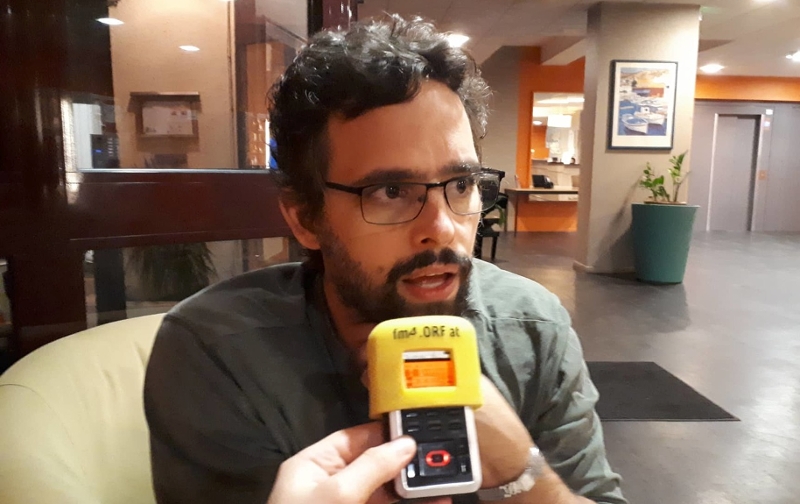
Johnny Bliss
Dr. Tom de Kok, MSF
I told Tom that I could imagine that his job was a little bit like working in an emergency room when there’s a big accident. He concurred... to a point.
"I would say that it’s probably even worse, because with a mass casualty in a western hospital, you are recruiting the resources of an entire hospital. If we have nine or ten drownings, and they’re brought on in successive order on the boat, we have to use the resources available to us, because it’s not an ICU.
"It has been very challenging, when children drown in front of people and you have limited resources, and you’re making choices of who to pull out of the water at a given moment, and that’s heartbreaking for a lot of people.
"And now, we’ve been spending longer periods of time at sea with the rescued persons. With that also comes the exacerbation of existing mental health issues, and issues that have been created by the traumas experienced in flight. We had, on our last rescue, someone having a full-blown panic attack.
„Prior to the present circumstance, when we docked in Italy, there was another section of MSF present there. Healthcare was provided to rescued people, and we would get follow-up. But as we don’t know where we’ll be able to disembark, our capacity to follow-up with people, and deliver them to the medical care that they need, is severely limited.“
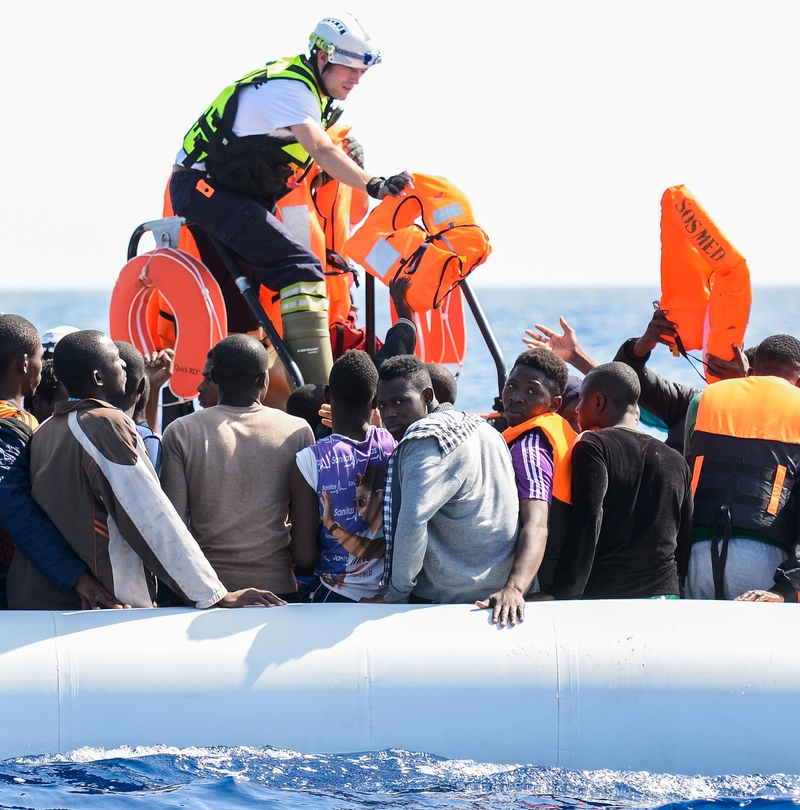
Guglielmo Mangiapane, SOS Méditerranée
November 19th-23rd: In a series running on FM4’s Reality Check, our roaming reporter Johnny Bliss is at the port of Marseilles, on-board the ship legendary for rescuing asylum-seekers fleeing across the Mediterranean: the MS Aquarius rescue ship. He’s spoken with crew members, press officers, and medical professionals working for Doctors Without Borders, to get an intimate look at the real people affected by this humanitarian crisis on the sea. From 1pm.
Check this spot at the end of the week for the Reality Check podcast!
Publiziert am 19.11.2018








